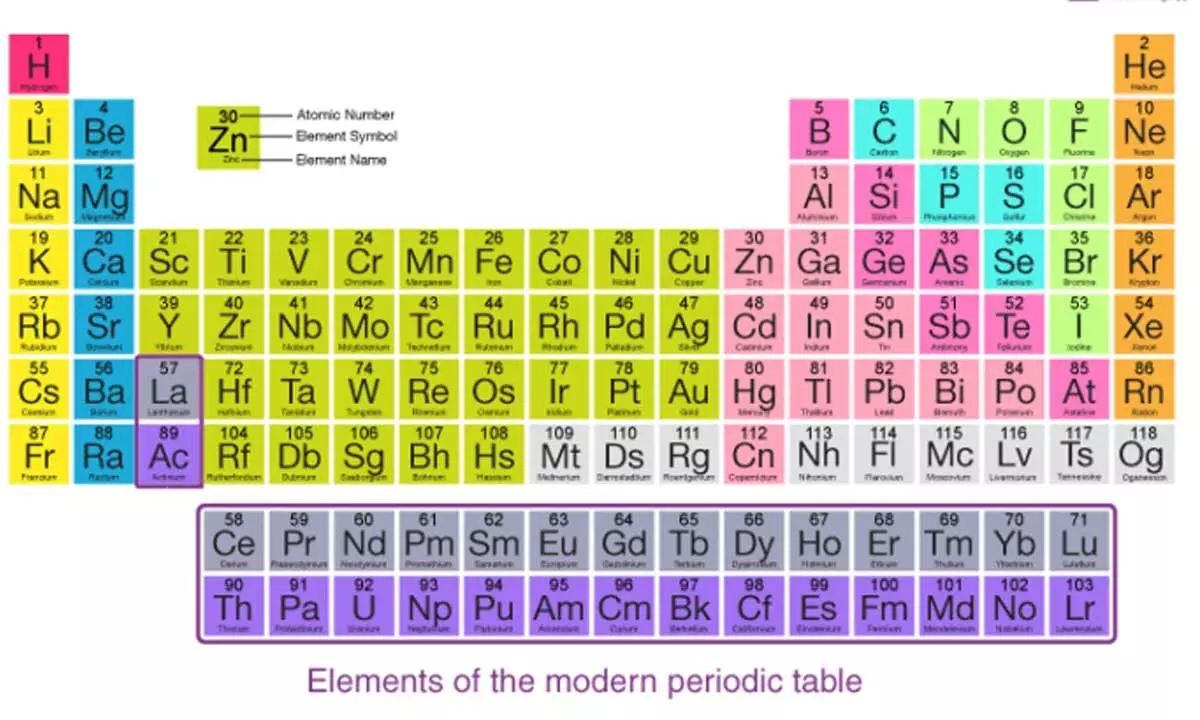India removes evolution and periodic table from text books

India removes evolution and periodic table from text books
Education plays a crucial role in fostering scientific literacy, critical thinking, and evidence-based reasoning
Education plays a crucial role in fostering scientific literacy, critical thinking, and evidence-based reasoning. Removing essential scientific concepts like the periodic table and evolution can hinder students' ability to engage with scientific ideas and understand the natural world. The removal of key scientific concepts from school textbooks could create a disconnect between school education and higher education or scientific research. Students may struggle to grasp advanced scientific concepts or pursue careers in scientific fields that require a solid foundation in these fundamental topics
Education plays a crucial role in fostering scientific literacy, critical thinking, and evidence-based reasoning. Removing essential scientific concepts like the periodic table and evolution can hinder students' ability to engage with scientific ideas and understand the natural world. The removal of key scientific concepts from school textbooks could create a disconnect between school education and higher education or scientific research. Students may struggle to grasp advanced scientific concepts or pursue careers in scientific fields that require a solid foundation in these fundamental topics.
In India, children under16 returning to school this month at the start of the school year will no longer be taught about evolution, the periodic table of elements or sources of energy. The news that evolution would be cut from the curriculum for students aged 15–16 was widely reported last month, when thousands of people signed a petition in protest. But official guidance has revealed that a chapter on the periodic table will be cut, too, along with other foundational topics such as sources of energy and environmental sustainability. Students will no longer be taught certain pollution- and climate-related topics, and there are cuts to biology, chemistry, geography, mathematics and physics.
Overall, the changes affect some 134 million 11–18-year-olds in India’s schools. The extent of what has changed became clearer last month when the National Council of Educational Research and Training (NCERT) — the public body that develops the Indian school curriculum and textbooks — released textbooks for the new academic year that started in May.
A chapter on the periodic table has been removed from the syllabus for class-10 students, who are typically 15–16 years old. Whole chapters on sources of energy and the sustainable management of natural resources have also been removed. A small section on Michael Faraday’s contributions to the understanding of electricity and magnetism in the 19th century has also been stripped from the class-10 syllabus. In non-science content, chapters on democracy and diversity; political parties; and challenges to democracy have been scrapped. And a chapter on the industrial revolution has been removed.
If the periodic table and evolution were to be removed from school textbooks, there could be several potential consequences.
The removal of the periodic table would mean students lose a fundamental tool for understanding the organization and properties of elements. This could hinder their understanding of chemistry and related scientific fields.
Evolution is a foundational concept in biology and provides the framework for understanding the diversity and interconnectedness of life. Its removal would leave a significant gap in students' understanding of how species have changed and diversified over time.
Removing the periodic table and evolution from textbooks is likely to generate significant controversy and public debate. This can lead to social divisions and conflicts between those who advocate for a science-based education and those who have different perspectives, including religious or cultural beliefs.
It's important to note that these potential consequences are based on the assumption that the removal of the periodic table and evolution from school textbooks would result in a significant gap in scientific education. The specific impact would depend on the context, the reasons behind the decision, and any alternative approaches to teaching these topics that might be implemented.
The relationship between evolution and creation stories can vary depending on one's perspective and interpretation. While some religious creation stories may conflict with the scientific theory of evolution, it is important to recognize that not all religious individuals or religious traditions interpret their creation stories in a strictly literal or historical sense. Many people embrace the idea that religious texts contain symbolic or metaphorical narratives that convey deeper truths about the nature of the universe and humanity's place in it.
It's worth noting that the theory of evolution is widely accepted within the scientific community as the well-supported explanation for the diversity of life on Earth. It is supported by a vast amount of empirical evidence from various scientific fields, including paleontology, genetics, and comparative anatomy, among others. The theory of evolution explains how species gradually change and diversify over time through natural selection and genetic variation.
However, it's worth noting that many religious individuals and groups embrace both scientific understanding, including evolution, and their religious beliefs. They see science and religion as compatible ways of understanding different aspects of reality. For these individuals, creation stories may be seen as symbolic or metaphorical expressions of deeper spiritual or philosophical truths, rather than literal historical accounts.
It is essential to respect diverse perspectives and engage in dialogue that promotes understanding and mutual respect between scientific and religious communities. Many religious traditions have found ways to reconcile their beliefs with scientific discoveries, allowing room for both faith and an appreciation for the natural world and its processes.
Science educators are particularly concerned about the removal of evolution. A chapter on diversity in living organisms and one called ‘Why do we fall ill’ has been removed from the syllabus for class-9 students, who are typically 14–15 years old. Darwin’s contributions to evolution, how fossils form and human evolution have all been removed from the chapter on heredity and evolution for class-10 pupils. In India, class 10 is the last year in which science is taught to every student. Only students who elect to study biology in the final two years of education (before university) will learn about the topic.
Experts say that the curriculum revision process has lacked transparency. But in the case of evolution, “more religious groups in India are beginning to take anti-evolution stances”.
More than 4,500 scientists, teachers and science communicators have signed an appeal, to reinstate the axed content on evolution.
(The writer is a President, Praja Science Vedika)










